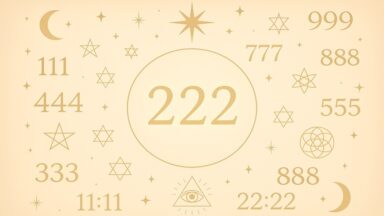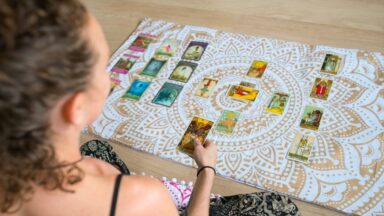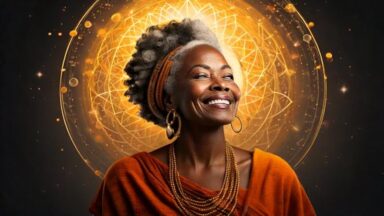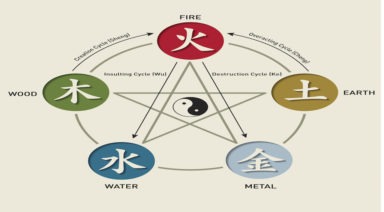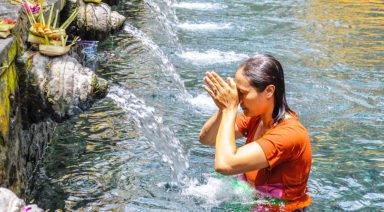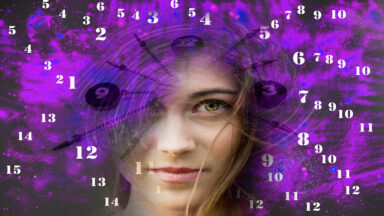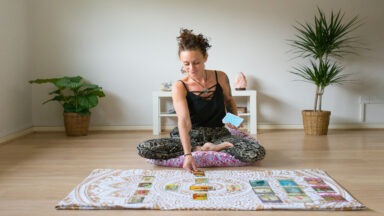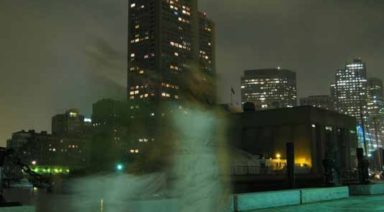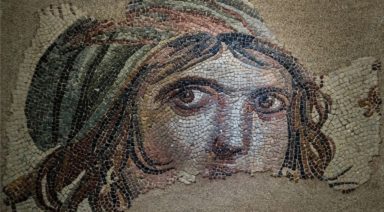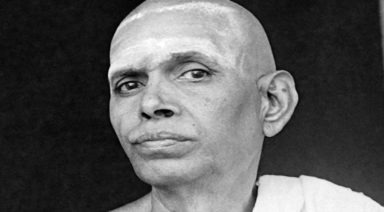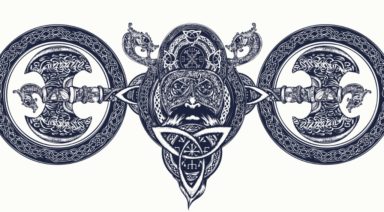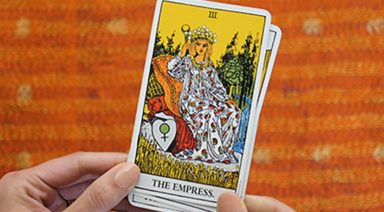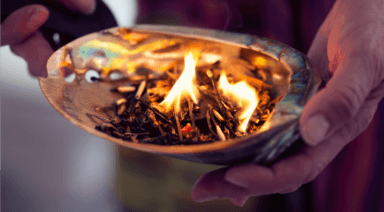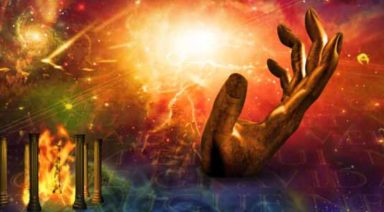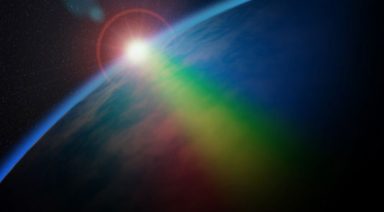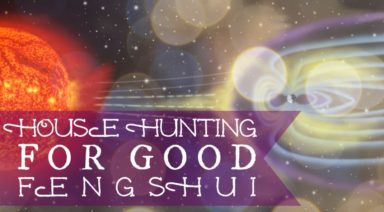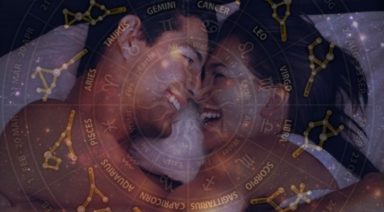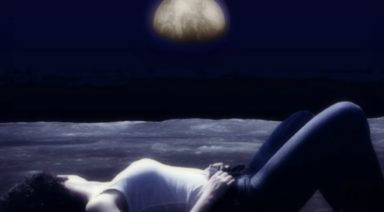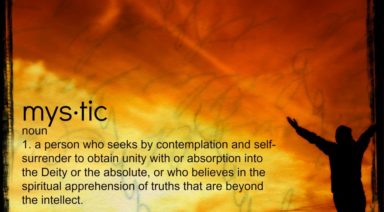10 Best Spiritual Documentaries Streaming on Gaia

Challenges abound today, both individually and collectively. As a result, many people continue to search for answers, guidance, or information to help them cope, grow, and transcend. Spiritual documentaries are a beneficial resource to help with this, showing us more and more about the universe and our role within it. Use them to expand your awareness, heal from emotional trauma, and change your life for the better. To help begin or continue on your journey, Gaia offers a vast collection of spiritual documentaries and films to choose from.
As an on-demand streaming service, Gaia offers subscribers the largest resource found online today for consciousness-expanding video content. The platform shares informative and creative films, original shows, and yoga and meditation classes.
Wherever you are in your journey or starting one, these resources are helpful and even life-transforming. Below is a list of the ten best titles to check out today.
The best spiritual documentaries include:
Must Watch Top 10 List
Although different topics and documentaries will attract different individuals, the following list of the 10 best spiritual documentaries on Gaia will set you on a path to discovery. Get started on these must-watch films today and see where it leads you next.
1. Chasing the Present
Searching for a way out of crippling anxiety, panic attacks, and fear, successful entrepreneur James Sebastiano decides to embark on a worldwide, life-changing journey of self-discovery and documents what he finds in his film, Chasing the Present.
Along the way, he listens to thought leaders from a variety of backgrounds, becoming immersed in plant medicine and meditation. This documentary includes interviews with experts including Zelda Hall (psychotherapist), Graham Hancock (journalist), Alex Grey (artist), and Gary Weber (meditation and yoga teacher).
Sebastiano finds that no one is immune to mental health issues and anxiety while discovering that true happiness and beauty lies in the struggle inherent to the human condition. A Best Documentary winner at the Chelsea Film Festival, Chasing the Present is one of the best documentaries on spiritual awakening.
Year Released: 2019
Length: 1 hour, 33 minutes
Director: Mark Waters
2. Becoming Nobody
Becoming Nobody encompasses the life and teachings of Harvard professor Richard Alpert, who later became known as the spiritual guru Ram Dass, presented in stories, archival footage, and engaging interviews with director Jamie Catto. Ram Dass explains how the majority of human beings are born into the “somebody” type of training and that choosing to become nobody instead will release you from the overarching demands of the ego and lead to ultimate freedom.
Ram Dass bridges the gap between Eastern and Western philosophies, sharing his discoveries of truth and wisdom learned during his travels throughout India. In this documentary, he reveals how disguises and old roles become much like a prison to us. To free ourselves, we must move past these definitions of who we are or are meant to be.
Release Date: 2019
Length: 1 hour, 22 minutes
Director: Jamie Catto
3. Awake: The Life of Yogananda
Discover how the concept of spiritual living and the practice of yoga came to America in the 1920s with the arrival of Paramahansa Yogananda, and learn how influential his teachings still are today. Yogananda was the first to bring Eastern teachings into the West and provided an inspiring example of how all people can live with authenticity and purpose.
Throughout the film, you’ll explore the teachings by the author of the spiritual classic Autobiography of a Yogi, accompanied by interviews with yoga teachers, students, and scientists. You’ll hear from spiritual thought leaders, including Deepak Chopra, Ravi Shankar, and Krishna Da. You’ll also hear from physicist and Harvard Professor Dr. Anita Goel, as well as modern-day followers of Yogananda’s teachings, such as musician George Harrison. Within these interviews, you’ll gain an understanding of the profound impact his teachings have had and continue to have today for any spiritual seeker.
Year Released: 2014
Length: 1 hour, 27 minutes
Directors: Paola de Florio and Lisa Leeman
4. Finding Joe
Mythologist, philosopher, and American author Joseph Campbell coined the concept of “the hero’s journey,” depicting an archetype found deep within all stories. In this inspiring and uplifting spiritual documentary, writer, producer, and director Patrick Takaya Solomon examines Campbell’s life and work by showcasing the wisdom of notable names, including Deepak Chopra, Rashida Jones, Robin Sharma, and many others.
Taking it a step further and centering in on Campbell’s “follow your bliss” advice, interviews with skateboarder Tony Hawk, drummer Mick Fleetwood, and pro-surfer Laird Hamilton provide more insight into the hero’s journey and what it means for them.
Overall, Finding Joe is an inspirational film that reveals the journey we all must take in order to discover our purpose.
Year Released: 2011
Length: 1 hour, 20 minutes
Director: Patrick Takaya Solomon
5. What the BLEEP Do We Know!?
The What the BLEEP Do We Know!? film is one of the most successful spiritual documentaries of all time.
At the center of the story is Amanda (Marlee Martin), a neuroscientist whose life seemingly begins to unravel after the death of a friend. As she enters into the unexpected quantum field that hides behind what is considered reality, Amanda struggles with her newfound spiritual abilities and the true nature of reality.
Mystics and scientists, share ideas and wisdom on quantum physics, quantum mechanics, neurology, evolutionary thought, and spirituality, all leading to an interwoven conclusion explaining how all things are connected. A combination of story, inspiring animations, and visuals, this film elicits an Alice in Wonderland effect that will leave you thinking.
Year Released: 2004
Length: 1 hour, 48 minutes
Directors: Mark Vicente, Betsy Chasse, William Arntz
6. I AM
In an attempt to understand what is so wrong with this world and what can be done about it, successful filmmaker and comedian Tom Shadyac embarks on a journey for answers by seeking out spiritual and intellectual leaders across the globe. He shares eye-opening discussions with philosophers, religious leaders, scientists, and more, finding answers about the nature of humanity, the escalating attachment to materialism, and the important role of human connection.
Those he interviews include historian and playwright Howard Zinn, intention author Lynne McTaggart, linguistics professor Noam Chomsky, evolutionary biologist Elisabet Sahtouris, geneticist David Suzuki, and South African Anglican Bishop and Theologian Desmond Tutu.
Year Released: 2011
Length: 1 hour, 17 minutes
Director: Tom Shadyac
7. Unlocking the Secret
Returning to the law of attraction many learned about in Rhonda Byrne’s successful book and movie, The Secret, this documentary film digs in deeper.
Follow along as three college students embark on a journey to investigate the truth behind the law of attraction phenomenon and experience what they unexpectedly discover along the way. You’ll hear from compelling religious, scientific, and spiritual leaders as they share what makes the law of attraction work, why it sometimes fails to work, and ways to avoid mistakes so that you can use it to the fullest.
From understanding how negative thoughts and limiting beliefs influence your subconscious to the impact of positive thoughts on your life, this film shares what you can do to improve the outcomes.
Year Released: 2008
Run time: 58 minutes
Director: David Priest
8. The Reality of Truth
Could ancient wisdom and spiritual practices be the solution to today’s modern problems? Find out as you join the journey to explore the myths surrounding reality in this documentary guided by Mike Zapolin and Michelle Rodriguez.
Explore the relationship between religion, spirituality, and the healing potential of plant medicines such as Ayahuasca, which is used by ancient cultures throughout the world. You’ll also hear from spiritual leaders, including Deepak Chopra, Marianne Williamson, Ram Dass, Bruce Lipton, Michael Beckwith, and more. The Reality of Truth was the winner of the Van Gogh Award at the 2016 Amsterdam Film Festival and continues to be one of the most thought-provoking documentaries streaming online today.
Year Released: 2016
Length: 1 hour, 9 minutes
Director: Laurent Levy and Mike Zapolin
9. Yogic Paths
In this docuseries, Gaia takes you on a trip across India, exploring mystical landscapes and ashrams while providing insight into various yoga traditions through unprecedented conversations with spiritual leaders.
These interviews will speak to your heart and provide encouragement to pursue your own journey of self-discovery, helping you go beyond the physical and ordinary to guide you to true freedom.
Year Released: 2017
Length: Varies
Producer: Tatyanna Wright
10. Kalachakra: The Enlightenment
Kalachakra, or “the wheel of time,” is the highest initiation within Tibetan Buddhism. This secretive ceremony, often led by the Dalai Lama, is rarely filmed, which makes this documentary an important addition to the available spiritual resources today.
The story begins with a woman who suffers the loss of a sister early in life and, once older, begins to question what purpose her life has in this world. Set in the vibrant location of Dharamsala, India, the woman, as well as three individuals with differing backgrounds, begin to face their fears as the transformational power of the initiation and spiritual experience approaches. During the ritual, they each enter into an unknown and ancient dimension, which will change them forever.
Year Released: 2017
Length: 1 hour, 24 minutes
Director: Natalie Fuchs
Start Your Spiritual Journey with Gaia
On your journey of self-discovery and personal growth, spiritual movies can be beneficial by providing new ways of looking at reality and learning how to live a more meaningful life.
With access to Gaia’s streaming service, you can choose from our Spiritual Growth collection of videos and watch them at your own pace.
What Is the Fourth Dimension and Why You’re Already In It
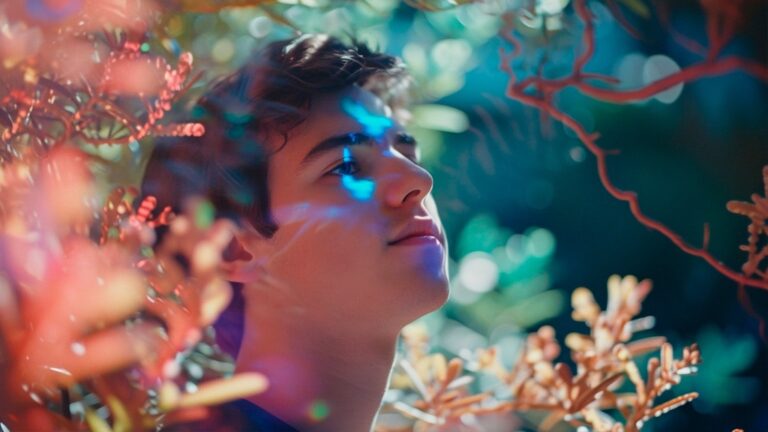
The spiritual fourth dimension is a plane of existence that allows us to understand the internal processes behind everything we experience. Unlike the third dimension, where the physical predominates, the 4th dimension organizes time, dreams, emotions, and subtle energies. In this article, we explore what the spiritual 4th dimension is from the perspective of Matías De Stefano, as explained in the series Initiation, available on Gaia.
Table of Contents
- What Is the Spiritual Fourth Dimension?
- Differences Between the Third, Fourth, and Fifth Dimensions
- Time as a Structure in 4D
- Energetic Characteristics of the Fourth Dimension
- The Astral Planes in the 4th Dimension and Their Levels
- The 4th Dimension After Death
- Beings That Inhabit the Fourth Dimension
- Dreams, Time, and Manifestation in 4D
- The Fourth Dimension as a Bridge to the Fifth
What Is the Spiritual Fourth Dimension?
The spiritual fourth dimension is one of the nine dimensions of the universe and is part of the energetic structure that composes all reality. It is not a place one reaches, but a plane that coexists with physical reality. While in the third dimension we perceive shapes, objects, and limits, in the fourth, the focus is on the processes that pass through those forms: movement, change, and constant transformation. This level of consciousness allows us to observe what lies behind the visible and better understand how events are organized from the subtle.
In this dimension, time is not perceived as a continuous line, but as a network of simultaneous possibilities. It is the space where our emotions, thoughts, memories, and future projections are stored. Everything we feel and think leaves a trace on this plane, which acts as an energetic matrix from which material reality is later organized.
In the series Initiation, available on Gaia, it is shown how this intermediate level between the physical and the spiritual allows us to understand the patterns we repeat, the emotions that condition us, and the relationships that transform us. Through this understanding, real transformation from within becomes possible, recognizing that every change in matter begins first in the energetic field.
Differences Between the Third, Fourth, and Fifth Dimensions
Each dimension represents a different way of experiencing life. Although all are present at the same time, how we relate to each one depends on the level of consciousness from which we inhabit reality. Understanding these differences allows us to integrate experience from a broader perspective.
- Third dimension: This is the physical and concrete plane. Here, consciousness identifies with the body, time is experienced as a line, and reality is interpreted through separation and rational logic.
- Fourth dimension: This is the plane of time, emotions, and energy in motion. Here, invisible connections between events, dreams, and intentions begin to be perceived.
- Fifth dimension: This is a state of expanded consciousness where everything is experienced as part of a greater unity. Time and space integrate, and a complete vision of the soul’s purpose is accessed.
Time as a Structure in 4D
In the fourth dimension, time is not a straight line from past to future, but a living structure that contains all processes of change. What we understand as “past,” “present,” and “future” coexists within the same field, where everything can be perceived as simultaneous. It’s as if all life stages—from childhood to old age—were happening at the same time from another perspective.
This dimension does not focus so much on events themselves, but on how they transform over time. Here, what matters is not what happens, but the process that generates it: the emotion that accompanies it, the intention that drives it, the lesson it leaves behind. This is why accessing the fourth dimension means coming into contact with the dynamism of existence— with the invisible aspect that organizes the visible.
When one lives from this perspective, time ceases to be a limitation. It becomes a tool to understand cycles, review memories, transform repeating patterns, and open up to new possibilities. The fourth dimension doesn’t eliminate time—it expands it.
Energetic Characteristics of the Fourth Dimension
The fourth dimension is characterized by a type of energy subtler than that of physical matter, but denser than that of higher planes. Here, everything emotional and symbolic gains strength, and forms are molded by the frequency emitted from within. Personal vibration plays a fundamental role in how this plane is perceived and experienced.
- Active emotional field: Emotions are the dominant energy at this level. Everything you feel directly influences what you experience.
- Malleable reality: Forms are not fixed. They change according to your vibrational state and internal perception.
- Presence of symbols: Symbols, archetypes, and dreams play a central role. They act as a language of communication between planes.
- Echoes of thought: What is thought creates resonances. Ideas manifest more quickly and with greater clarity.
- Direct energetic interaction: There are no material filters. One being’s energy can immediately affect another if there’s no balance or conscious protection.
The Astral Planes in the 4th Dimension and Their Levels
Within the fourth dimension, there are different levels known as astral planes. These planes are not fixed places but vibrational states that correspond to the frequency of the one who inhabits or travels through them. Each plane reflects a particular type of experience and perception of reality.
- Lower astral: This is a dense level, where fear, unresolved emotions, and material attachments predominate. Here, energetic forms related to conflict, confusion, or suffering are manifested.
- Middle astral: This is a space of emotional and symbolic transition. At this level, consciousness begins to free itself from density, and processes of understanding and transformation become possible.
- Higher astral: This corresponds to higher frequencies, linked to clarity, harmony, and spiritual expansion. Here, perception is more luminous, and the soul prepares to access more subtle planes.
The 4th Dimension After Death
From the perspective of Matías De Stefano, when the physical body completes its cycle in the third dimension, consciousness does not disappear, but projects itself into the fourth dimension. This energetic projection is not random: it takes shape according to what the person has cultivated internally throughout their life. Emotions, beliefs, and mental patterns determine how this new reality is experienced, which is no longer limited by matter.
In this dimension, experience is entirely subjective and is constructed from within. Those who have lived with fear or attachment may generate chaotic or dense scenarios. On the other hand, those who have gone through life with greater balance access more harmonious planes. The fourth dimension neither judges nor rewards—it simply reflects and amplifies what consciousness already contains.
This transition does not imply a definitive separation but a continuous transformation. Energy remains in motion, and the soul retains the possibility to learn, release burdens, or prepare for new experiences. The 4th dimension functions as a reorganization field, where what has been lived is understood and the path is redefined before moving on to subtler levels of existence.
Beings That Inhabit the Fourth Dimension
In the fourth dimension, there are multiple life forms that do not have physical bodies but actively interact with the energetic field of human beings. Some of these presences offer guidance, others serve as teachers, and some feed on dense emotions. The relationship with these beings does not depend on chance but on the vibration from which one accesses this plane.
- Spiritual guides: They accompany processes of consciousness without imposing paths. Their presence is subtle and often manifests as intuitions, dreams, or synchronicities.
- Symbolic beings: They appear in archetypal forms in the dream or meditative world. They function as mirrors of the unconscious and help integrate internal aspects.
- Energetic parasites: They feed on fear, guilt, or anger. They often approach people with energetic cracks or emotional imbalance.
- Time beings: They are not tied to physical forms but to processes. They perceive reality as a web of simultaneous moments and can manifest according to the observer’s perception.
- Ancestral presences: They represent family, cultural, or planetary memories. They usually appear when it is necessary to recognize, heal, or integrate stories that still impact the present.
Dreams, Time, and Manifestation in 4D
In the fourth dimension, dreams are real experiences within an energetic plane that does not follow the laws of the physical world. Here, time does not follow a linear sequence but appears as a space of multiple possibilities. While sleeping, part of our consciousness detaches from the physical body and accesses this structure, where it can explore memories, anticipate situations, or encounter symbols that represent internal processes.
This level functions as a testing ground where thoughts and emotions take shape. Ideas that are repeated with clarity and coherence can solidify and begin to organize the reality that later manifests in the third dimension. That’s why dreams often anticipate events or offer insights to understand what’s happening in everyday life. They are not meaningless illusions—they are energetic movements within a plane of creation.
When one accesses the fourth dimension consciously, it becomes possible to recognize how events are generated before they happen. This awareness allows for the transformation of limiting beliefs, the release of trapped emotions, or the redirection of intentions more precisely. It is a way to actively participate in the manifestation process, using time not as a limitation, but as a tool for creation.
The Fourth Dimension as a Bridge to the Fifth
The fourth dimension plays an essential role as a space of transition between the density of matter and expanded consciousness. Here, the old is dismantled, internal energy is reorganized, and processes that were previously unconscious become clear. This plane is not a final destination but a stage that prepares the ground for accessing higher states of understanding and unity. Integrating this dimension is fundamental to evolving toward higher levels of consciousness.
To reach the fifth dimension, one must first go through and integrate the experiences of the third and fourth. It is not about “skipping” stages, but about recognizing how each one offers unique tools for the soul’s journey. In the fourth dimension, distortions are cleared, emotions are aligned, and the creative power of thought is acknowledged. Only then can one sustain the subtler and more coherent frequency that the consciousness of unity requires.
From this perspective, the fourth dimension is a plane of conscious transformation. It not only reveals what needs to be understood but also offers the means to do so. By inhabiting this level with presence and openness, one builds the bridge that enables the shift from a fragmented perception of reality to a broader, more integrated view aligned with the soul’s purpose.



